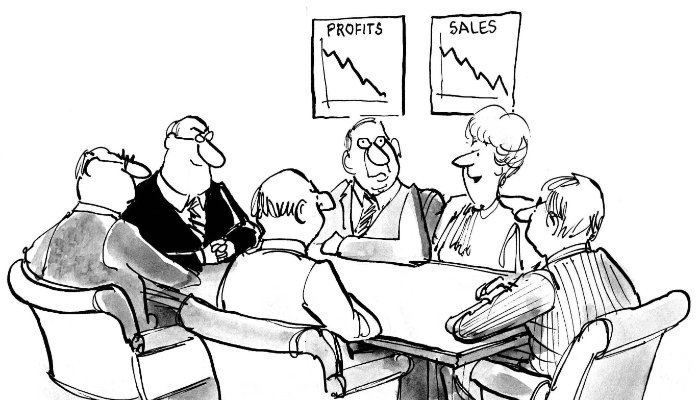
The thing about clichés, apart from being over-used and irritating, is that they may sound good/wise, fit neatly around the topic in hand, and provide a short-cut to a common agreement. This last element is the troubling one. A short-cut is one thing but, if the common agreement arrived at is the wrong one, then we have a problem.
Picture this: there you are in the middle of a discussion about the various options for purchasing / leasing a number of company vehicles and one of the options is ‘electric cars’. A bright spark (pun not intended), jumps up and delivers the killer argument: ‘we should select the electric cars because we can boast about the fact we are environmentally friendly, which is good for our corporate social responsibility image, this way we kill two birds with one stone.’ Everybody is now alerted to the fantastic opportunity of double-bird killing with the throw of a single stone and the discussion is curtailed before other important factors are considered.
When the time comes to implement our quick decision, we find that attempting to kill the two birds by using a single stone is much easier said than done and in actual fact, many stones need to be used, the tree is full of all sorts of birds, most of which we are not interested in, and the birds we manage to kill are not even edible. So thank you, Mr Cliché for the premature evaluation!
The world of work these days doesn’t seem to be satisfied with the old clichés such as the above one or as in: ‘Better late than never’; ‘The early bird catches the worm’; ‘it takes two to tango’, ‘throwing out the baby with the bath water’ and so on. So, we invented new ones which are just as vacuous and almost as worthless. Here is my favourite set of useless/pointless modern clichés and why I dislike them:
- We are on the same page: Apart from the fact that the people who use this cliché are hardly ever on the same book, much less the same page as you, it is a long-cut instead of a short one to saying: we are agreed.
- Pushing the Envelope: Excuse me? This apparently is an aviation term that describes the safety range of an aircraft and the risk taken when attempting to fly beyond that. So, it is risky, dangerous and not advisable. In the world of business, it is used to encourage people to be creative and adventurous; hardly the same thing.
- Thinking outside the box: What I really dislike about this cliché is the person who uses it to introduce his/her about-to-be-revealed stupid idea in a grand way. As if this is not bad enough, the implication here is that all the ideas and suggestions on the table are inside the box thinking and by definition, are not worthy. So, it is both arrogant and insulting.
- 360-Degree Thinking: Anyone with the most basic knowledge of geometry will tell you 360 degree manoeuvre will bring you back to where you started. Although the cliché in this case is trying to convey width of thinking; it doesn’t.
- Deep Diving: up until this two-word cliché came along to poison our brains, we have only done shallow diving; also, very insulting.
- Centre of Excellence: Now, who on earth sets out to create centres of incompetence or even centres of mediocrity? So, why the hell bother to refer to any entity as a centre of excellence?
- I have an open-door policy: As opposed to all the other professionals who have a closed-door policy, which is supposed to make the speaker a refreshingly open and accessible individual. In any case, every time I hear the word ‘policy’, I immediately assume someone is going to give me a large ‘procedure manual’ that goes into details on how to apply the policy in question.
- Running the idea up the flagpole: Used when introducing a new idea which is still in its infancy in order to gauge people’s reaction. It is yet another utterance that confuses rather than enlightens. In real life, we run actual flags up a flagpole and these flags are recognised, revered and loved. Ideas however, are new, unloved, unfamiliar and likely to be disrespected because they maybe useless.
- Paradigm Shift: My pet hate, this phrase was usurped from a different discipline after it was first coined by Thomas Kuhn referring to scientific matters to describe a major change in scientific thinking and practices which happens so rarely like when scientists finally believed Galileo’s claim that the earth was round. In the business world, anyone who can correctly spell and pronounce ‘paradigm’, claims a shift in it when they describe everyday events like when they come back from a mildly interesting conference or introduce flexitime working. There was no paradigm and it never shifted!
But, I sense we are singing from the ‘same hymn sheet’, so ‘with all due respect’ instead of ‘pushing at an open door’, we now have a ‘level playing field’ so, let’s ‘get our ducks in a row’ and ‘deal with the matter head on’, instead of freezing like ‘rabbits in the headlights’, after all, there are many ‘low-hanging fruit’ to pick but, I will ‘touch base’ with you soon to see how we may ‘raise the bar’ in business talk and create our own ‘paradigm shift’. How does this ‘jive with you’?


